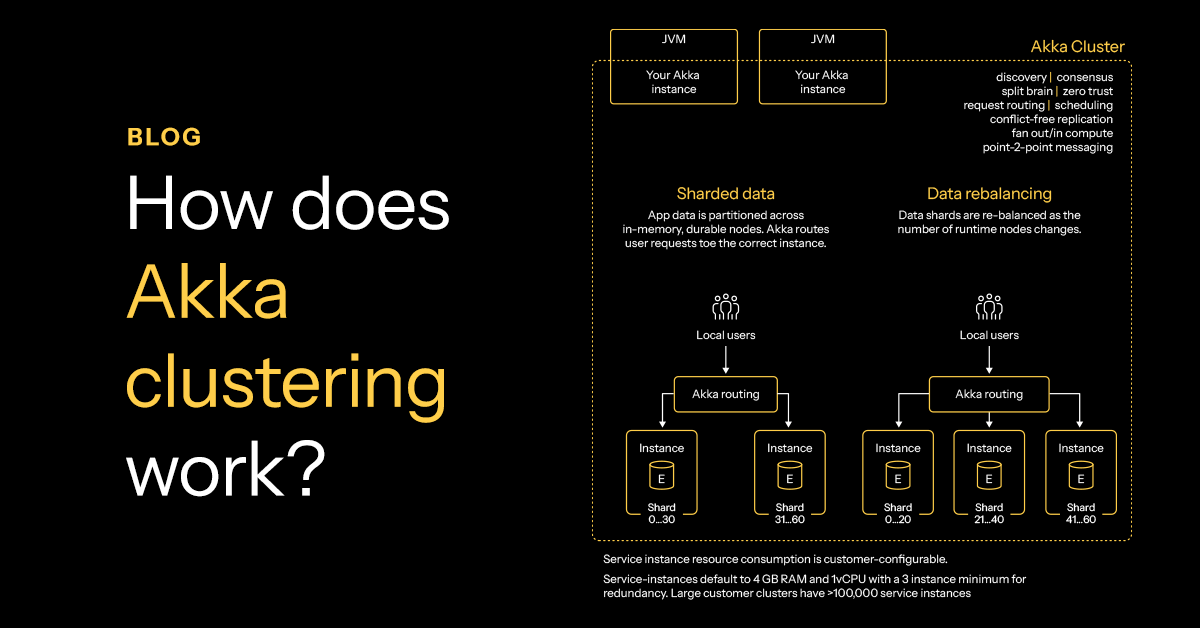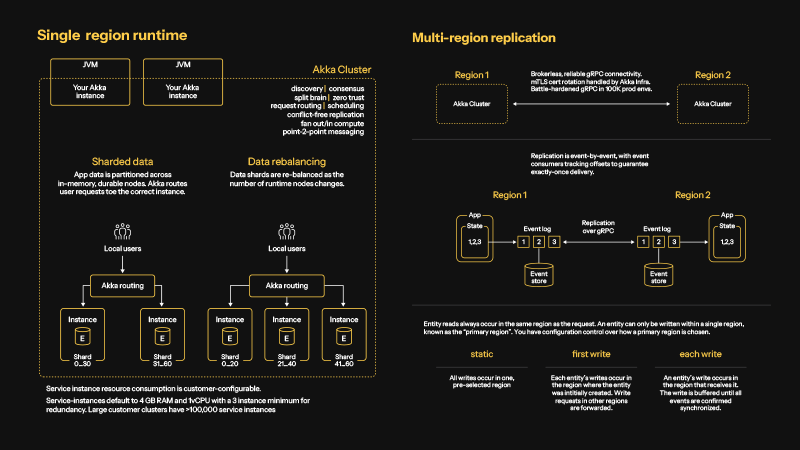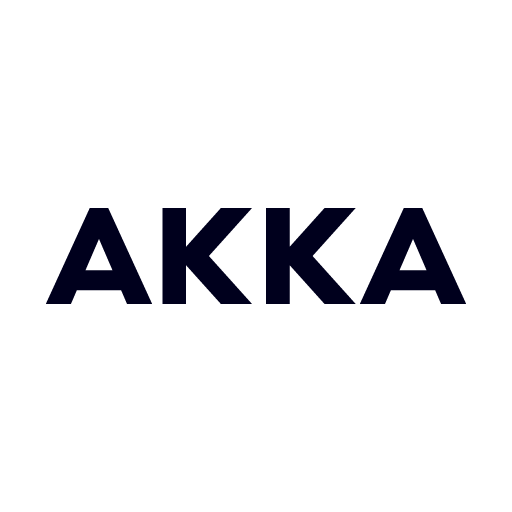Blog
All the latest info and insights from the Akka team
Featured

How does Akka clustering work?
Learn how Akka clustering powers real-time, agentic AI services with resilient stateful entities, CRDTs, and brokerless service communication.

Design patterns for agentic AI
Learn how to build scalable, event-driven AI agents using agentic design patterns and platforms like Akka in this on-demand webinar.

New Akka deployment options: elasticity on any infrastructure
We are introducing new deployment options for services built with the Akka SDK: self-managed nodes and self-hosted Akka Platform regions.
All Blogs

Tyler Jewell

Tyler Jewell

Duncan Devore

Tyler Jewell

Duncan Devore

Andrzej Ludwikowski

Johan Andrén

Eduardo Pinto

Jonas Bonér

Tyler Jewell

Team Akka

Duncan Devore

Tyler Jewell

Tyler Jewell

Kevin Hoffman

Tyler Jewell

Kevin Hoffman

Tyler Jewell

Tyler Jewell

Andrzej Ludwikowski

Andrzej Ludwikowski

Andrzej Ludwikowski

Andrzej Ludwikowski

Andrzej Ludwikowski

Andrzej Ludwikowski

Team Akka

Team Akka

Jonas Bonér

Tyler Jewell

Tyler Jewell

Andrzej Ludwikowski

Michael Nash

Jonas Bonér

Eduardo Pinto

Patrik Nordwall

Team Akka

Tyler Jewell

Christopher Hunt

Jonas Bonér

Jonas Bonér

Peter Vlugter

Patrik Nordwall

Patrik Nordwall

Johan Andrén

Jonas Bonér

Jonas Bonér

Janik Dotzel

Patrik Nordwall

Johan Andrén

Jonas Bonér

Patrik Nordwall

Michael Nash

Patrik Nordwall

Jonas Bonér

Jonas Bonér








